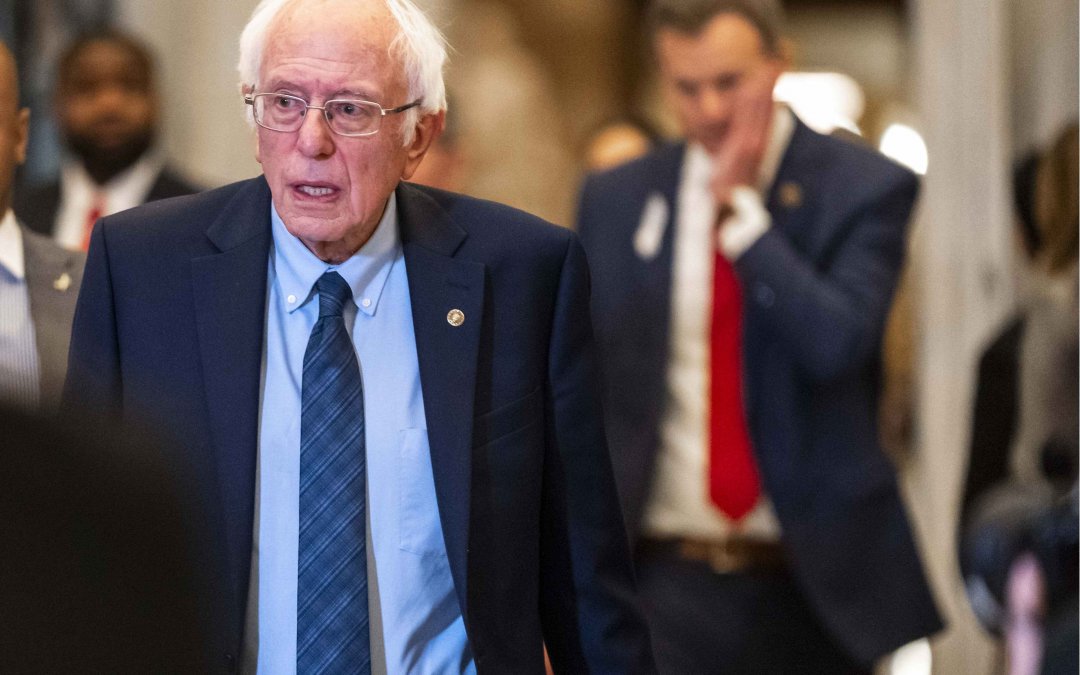WASHINGTON — Sen. Bernie Sanders (I-Vt.) is calling on Congress to press for a 32-hour workweek without any loss in pay, noting that Americans are working longer hours than people of any other wealthy nation even with the advancement of technology.
“Despite these long hours, the average worker in America makes almost $50 a week less than he or she did fifty years ago after adjusting for inflation,” Sanders said, chairman of the Health, Education, Labor and Pensions Committee, during a hearing on Thursday that focused on the issue.
He noted that it has been 80 years since Congress had held a hearing on the topic, and he called several worker advocates to testify about the benefits of reducing standard work hours. He is introducing new legislation that has the backing of several unions including the AFL-CIO.
Shawn Fain, the president of the Union Auto Workers, testified on Thursday in favor of the legislation, saying working fewer hours has advantages such as higher productivity and employee well-being.
“Those who make this country run, who build the products and contribute the labor, have less and less time for themselves, for their families, and for their lives,” Fain said in his testimony.
“The working class people are not lazy, they are fed up, they are fed up with being left behind, stripped of dignity, as wealth inequality in this nation spirals out of control,” he said.
He added that workers today are living paycheck to paycheck and working deep into their 70s and 80s because they cannot afford to retire.
Sanders said that over the past 50 years, technology has undergone tremendous progress, yet the majority of the financial benefits have gone to the wealthiest, while worker wages have either stagnated or declined.
“Today’s CEOs earn 350 times more than the typical employee, and workers across the nation are witnessing the disintegration of their families. … people have to miss out on family time in order to work longer hours,” he said,
Sanders’s proposal has the backing of other Democrats, including Rep. Mark Takano (D-Calif.) who introduced companion legislation in the House. In practice, many companies could implement the measure by instituting four, eight-hour work days.
But it is unclear whether the bill will garner enough bipartisan support to become law. Sen. Bill Cassidy (R-La.), ranking member of the committee, said businesses need to maintain a 40-hour workweek to remain competitive not just locally but globally and a government mandate for a 32-hour workweek will be catastrophic.
“Government should not undermine an employer’s ability to keep their doors open with unreasonable mandates,” Cassidy said in his opening statement. He suggested that requiring such a cut in work hours will require companies to pay at least 25% more to employees, which could result in jobs being shipped overseas.
He added that businesses are always allowed to voluntarily try out a 32-hour workweek themselves.
Some representatives of the business sector also came out in favor of the shorter workweek. Jon Leland, chief strategy officer of Kickstarter, a crowdfunding platform, testified that his company went to a four-day workweek in 2022 after the pandemic.
“The truth is, a lot of time at work is not used efficiently,” Leland said in his testimony. “In the six months of the pilot, our ability to hit our company goals jumped from 62% to 95%”
Leland found so much benefit in the concept that he co-founded WorkFour, an organization to help companies transition to a four-day workweek.


